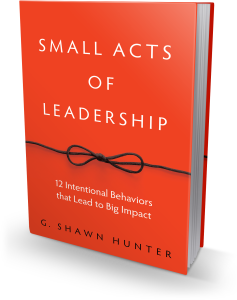Oh, There You Are!
David Sedaris wanted to quit smoking. So he moved to Japan for three months. It worked, and it only cost him $23,000. He read a book that told him the best way to change a habit is to change the environment. The author suggested that if you wanted to stop doing something difficult, perhaps addictive, you should move to another location temporarily. Change the environment, change your surroundings. Either that, or the author suggested move your couch.
We know that willpower can only take us so far. Willpower is so fragile, that the people who are best at self-regulation seldom use willpower as a lone tactic. Two researchers at the University of Toronto did a series of studies and concluded that willpower didn’t even help participants achieve their stated goals, it mostly just exhausted them from the effort of resistance.
Which explains why David Sedaris moved to Tokyo, where everything was not only strange and new, but also officials have banned almost all smoking in the city, except in specifically designated areas (which don’t look very inviting…).
Sedaris didn’t have to use willpower. He removed the temptation. Just like avoiding the bakery section at the grocery store. And while you should always be wary of your triggers, also seek out your glimmers. A glimmer is a sign, a cairn, you may find on the road to Future You. It could be a thoughtful conversation, a beautiful sky, or a quiet walk. It’s something that is representative of where you are going.
Changing your environment is similar to the advice of pruning your social environment as well. You may have to do some careful peer de-selection, at least for the short term. If you have a goal of losing weight, its hard to have a group of friends who want to go out for pizza and beer every Friday night. You could go, but then there you are having water and a salad with your friends and their pizza and beer. For some people that works, but likely not at the beginning when the goal is still fresh, and the temptation still strong.
Stopping something, or avoiding an ingrained behavior is also harder than starting something, particularly if you make that new something very easy. James Clear calls this the Two-Minute Rule. If you want to stop sitting on the couch and start running, a Two Minute rule might be “pick out what to wear for my run.” That’s it. You don’t even have to run. Or if the goal is to do more cooking, in two minutes you could probably read a couple recipes. That’s it. It’s about getting on the path. It’s about slowly becoming the kind of person who goes for a run, or cooks a meal.
Change your mental landscape, show yourself more self-compassion, and recognize that your gratitude practice is only partially about expressing thanks, and more about committing to an enhanced version of a future you. Your gratitude toward someone else is an expression of who you want to become in the future.
All of which – if you’re still reading – brings me to the point I’ve been trying to get to. When we get on the path, the path of starting something, pushing through, persevering, finishing the thing, or perhaps stopping some poisonous relationship or detrimental habit, we should do so in plain sight, out loud. And the reason for living out loud with your progress open for your friends and family to see, is because then they will see what you see.
When you can envision your future you, and you tell those you love, they will see it too. They will recognize who you are becoming.
In the movie Hook, there is a scene in which Robin Williams goes back to Neverland, and tries to convince the lost boys that he really is Peter Pan. No one believes him, until one small boy goes up to Robin Williams, takes the glasses from his face and starts to smush, and stretch Robin’s face and look deeply into his eyes, until he finally exclaims, “Oh, there you are Peter!”
_________________________________________

My book Small Acts of Leadership, is a Washington Post bestseller! You can grab a copy now.
And if you want to learn to apply some of these ideas and be an effective coach for your team, we wrote a course on that too. It’s called Coaching for Managers available over at UDEMY for Business.


